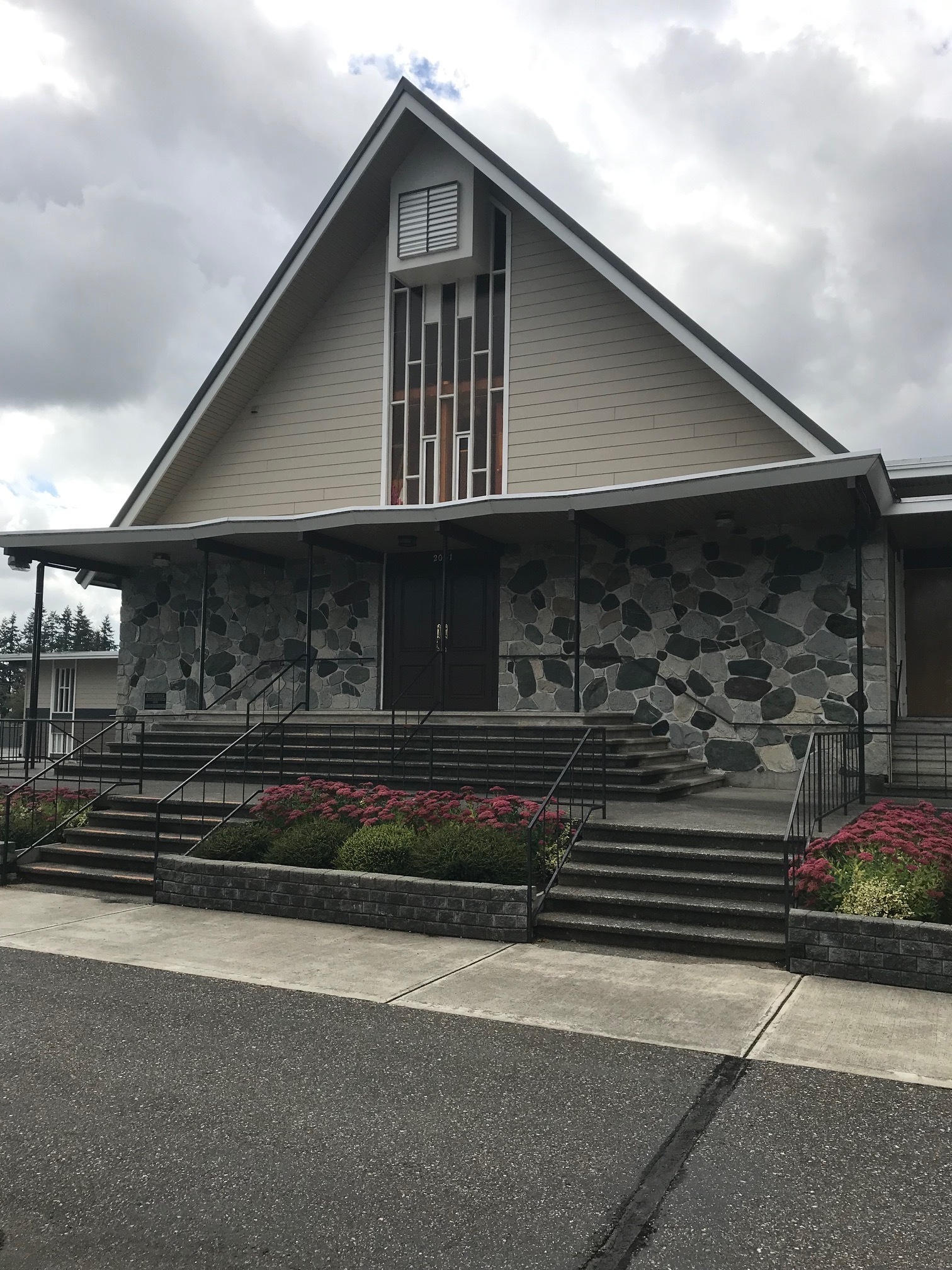Historical Sketch: Eben-Ezer Mennonite Church
The influx of German-speaking families from Europe and Paraguay in the post-World War II years brought into focus different language needs among the Mennonites in British Columbia. Whereas the West Abbotsford Mennonite Church was moving towards more use of English to accommodate acculturation, the new immigrants and others still preferred to use German. Other cultural issues, personalities and leadership styles were also present.
On January 24, 1963, 52 members of the West Abbotsford congregation formed a new congregation, ministering in the German language. Jake Tilitzky, a minister in the West Abbotsford congregation, was called to be the leading minister (his wife, Erna, served for years as pianist and choir leader), while another minister, Henry Neudorf, was asked to serve as assistant minister.
Land was purchased at the corner of Windsor and Marshall near West Abbotsford church, a sod turning ceremony was held on February 27, 1963, and the building was dedicated on July 14, 1963. They named it Eben-Ezer Mennonite Church (Eben-Ezer means "Stone of Help").
The 52 charter members grew to 146 in the first year. The numbers increased to about 500 by 1980. Facilities were added as required: an education wing in 1964, an enlarged sanctuary in 1970, and a gym in 1983.
In the early years, the leading minister also was the chairperson of the congregation. That changed in the mid-1970s when the congregation elected a separate chairman. Other organizational changes followed as needed. As the numbers grew, so, too, did the ministries: children, youth, and, of course, adults. This increased the need for more and more volunteer church workers.
Pastoral ministries at Eben-Ezer have changed over the years. For the first 14 years, the congregation had one salaried pastor and a paid part-time custodian. The paid office secretary came much later. Much of the care-giving was entrusted to the deacons who were elected for open-ended terms, and to the lay ministers who joined the church over the years. Later on, the congregation added paid staff for various ministries such as youth, music and worship, and the elderly. Eben-Ezer has never called a lead pastor out of its own midst.
Since its beginnings, Eben-Ezer has had a dominant immigrant character; in 2011 the congregation was 99% Caucasian. The charter members were immigrants with a close European or even Latin American connection. The membership above the age of sixty has increased significantly from under 20% in the first years to over two-thirds. Numerical growth has been mainly due to baptisms, urban migration of people who prefer a traditional style of worship, and new immigrants.
In the late 1970s refugees from Indochina came to Canada. Eben-Ezer sponsored about a dozen Laotian families (48 people). Members of the congregation offered to help materially, socially, and spiritually. Some of these Laotians eventually formed the Lao Christian Church which is still using Eben-Ezer’s facilities to this day. Refugees from other countries have also been sponsored by the congregation.
More recently, German speaking young families from Paraguay have made Eben-Ezer their spiritual home. At the congregational as well as many personal levels, there are strong ties between Eben-Ezer and Mennonites in Latin America. The current pastor, Artur Bergen – born and raised in Paraguay, has been serving Eben-Ezer since 2003.
The surrounding culture forced upon the congregation the very same challenges they could not face back in 1963. In 1978 some 40 members announced that they were ready to start an English-language congregation. This group formed what was to become the Emmanuel Mennonite Church in 1981. The departure of Emmanuel members underscored the need for the mother church to make some significant allowance for the remaining younger members in terms of the Sunday Worship services. About five years later, after some heart-wrenching processes, Eben-Ezer decided to offer separate German and English services. The occasional joint services had a distinctly bi-lingual flavour.
The children of the 1980s became parents at the turn of the 21st century. A reluctance or a failure to learn from the experiences of 1978, complicated by personalities and diverse understanding of the nature and governance of Eben-Ezer as well as the emphasis on local mission generated internal tensions. When in 2003 the English Ministries Pastor was not asked to serve another term, many felt thwarted and most of the families with children, including some grandparents, saw no choice but to go. They started the East Abbotsford Community Church.
Eben-Ezer has been a strong supporter of Mennonite organizations such as Conferences, Mennonite Central Committee, Benevolent Society, Columbia Bible College, and, until a few years ago, Mennonite Educational Institute.
Eben-Ezer Mennonite continues to be a dynamic, bilingual church in the truest and literal sense of the word. Eben-Ezer celebrated its 50th Jubilee in 2013.
